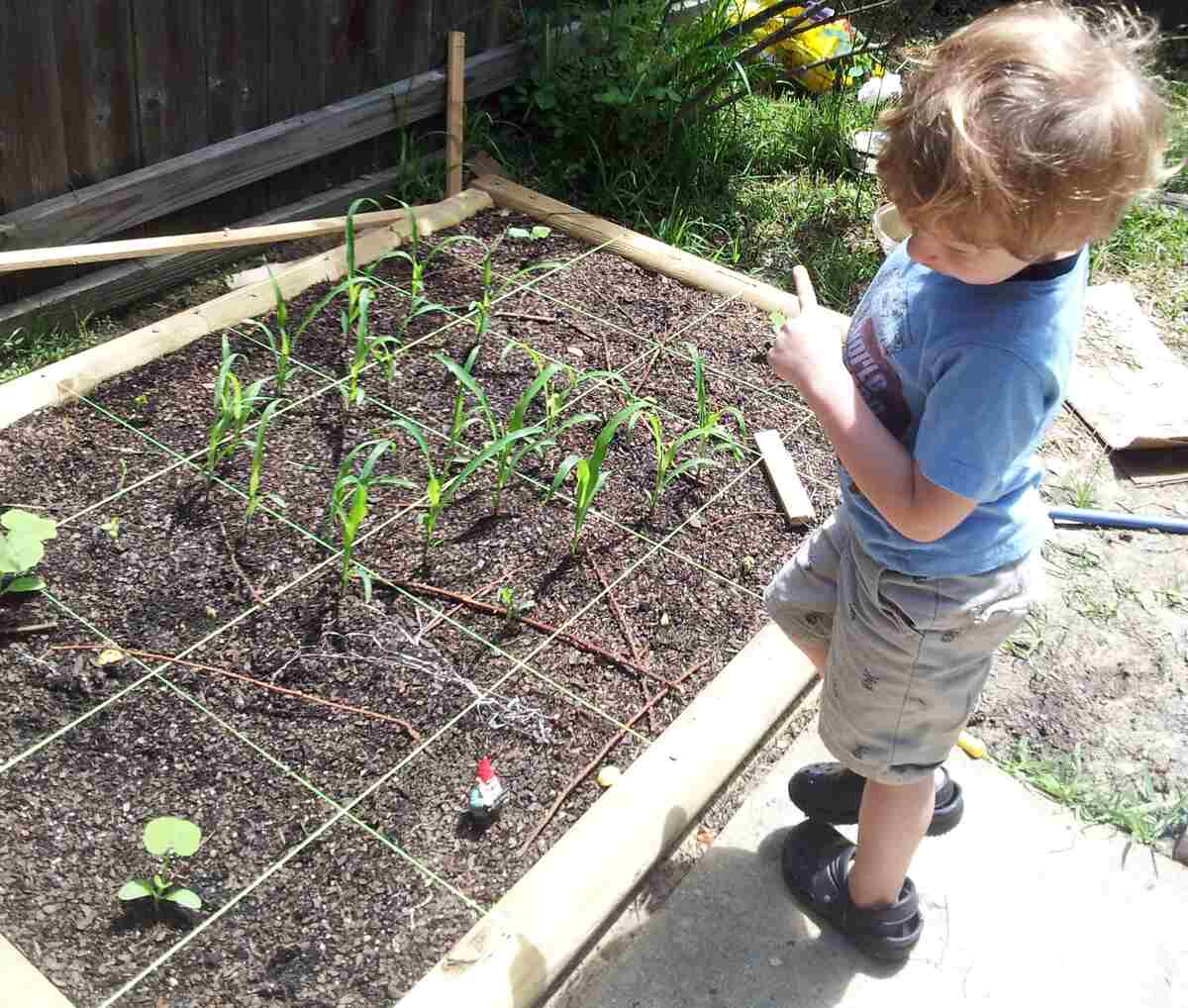
If you want a low-maintenance, edible, eco-friendly garden that produces a lot of food, consider a Three Sisters Garden. Indigenous people throughout North America developed three sisters planting to sustain the soil while growing nutritious food. Today, we will explain everything you need to know to grow a traditional Three Sisters Garden in your backyard.
What is a Three Sisters Garden?
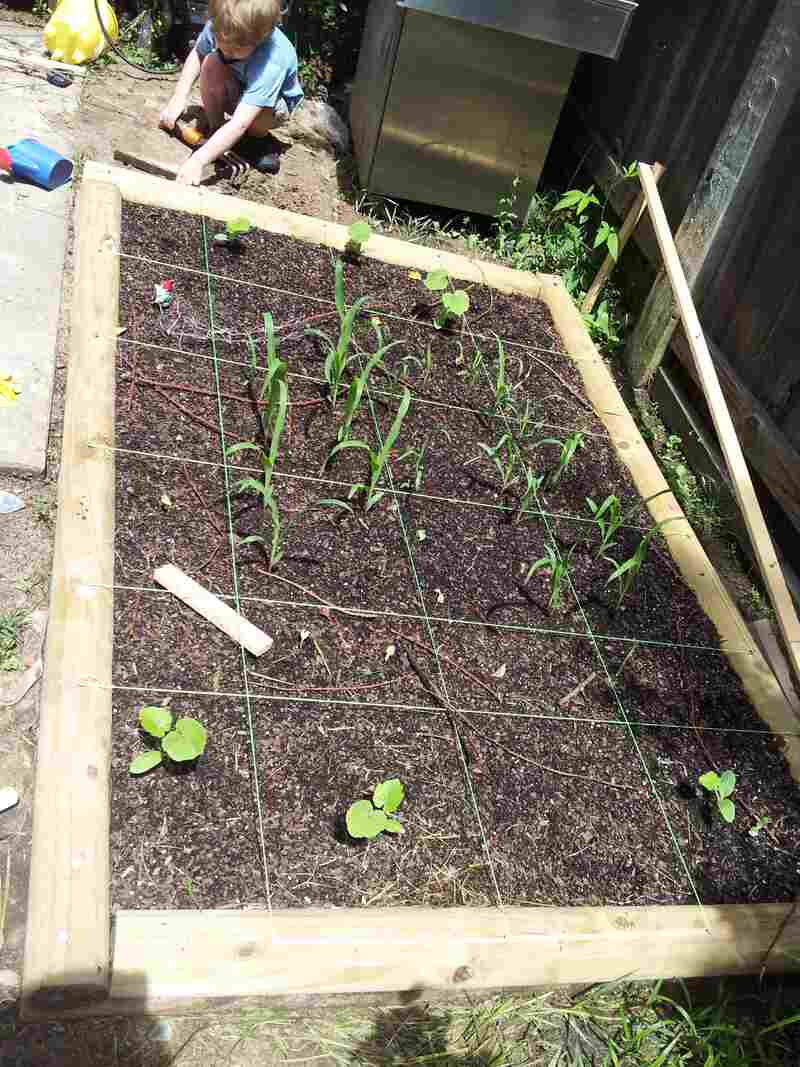
The Three Sisters is a Native American companion planting method that has been around for centuries. Iroquois first introduced it to European settlers in the early 17th century, and the method is still utilized today because it produces a lot of food without a lot of work.
The following “three sisters” are planted in the same field or same garden bed:
- Corn
- Pole beans
- Squash
The secret to the Three Sisters’ success is their natural symbiotic relationship. Just as any good sister should, they support each other to help one another grow.
Why Grow a Three Sisters Garden?
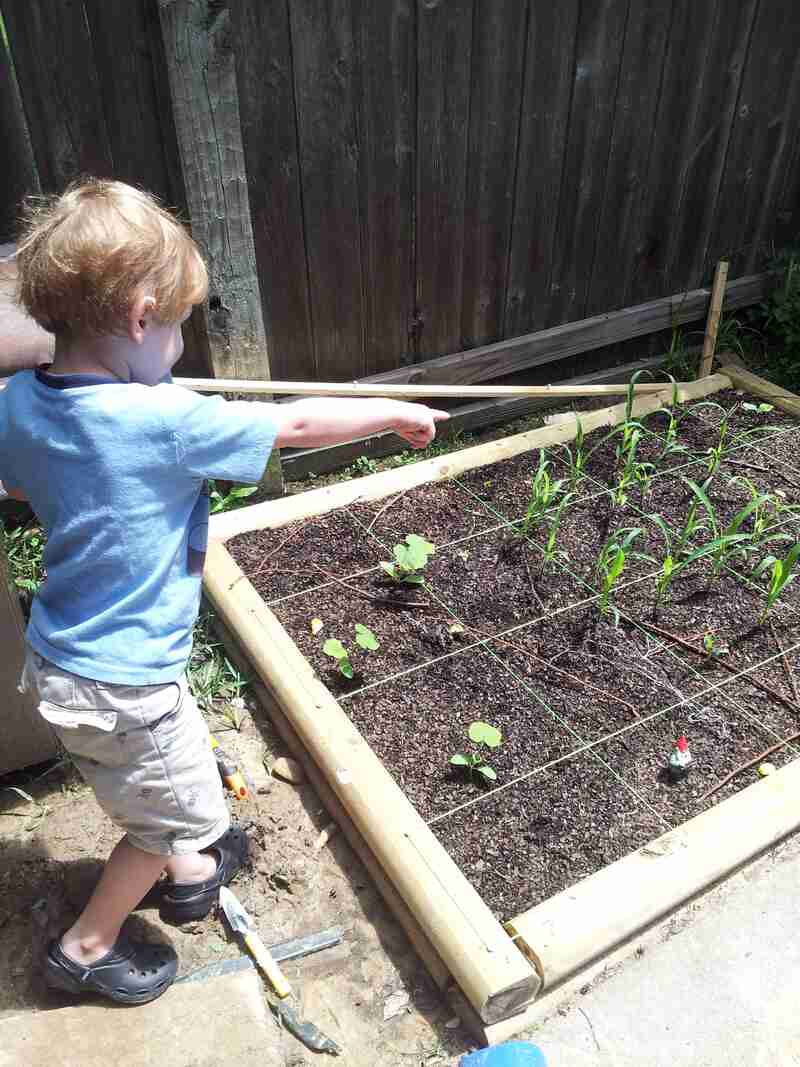
There are many great reasons to start a Three Sisters Garden, including:
- Yields a lot of food
- Low-maintenance
- Sustainable
- Attracts pollinators
- Deters pests
- Prevents weeds
- Provides well-balanced nutrition for you and your family (for free!)
- Easy beginner’s vegetable garden
How Do the Three Sisters Work Together?
Corn, pole beans, and squash support each other in the following ways:
- Corn stalks grow tall, acting as a trellis for climbing pole bean vines. Without the corn, squash would likely outcompete the beans.
- Pole beans help the whole family by fertilizing the soil with nitrogen. Their vines also stabilize the corn stalks, preventing wind damage.
- Squash vines have large leaves, so they act as living mulch. The ground cover shades the soil so less water evaporates, and weeds are less likely to sprout. The squash’s leaves are prickly, so they also help keep pests away.
How to Grow a Three Sisters Garden
The Three Sisters Garden has many variations, but we’ll focus on the planting pattern shown in the diagram below.
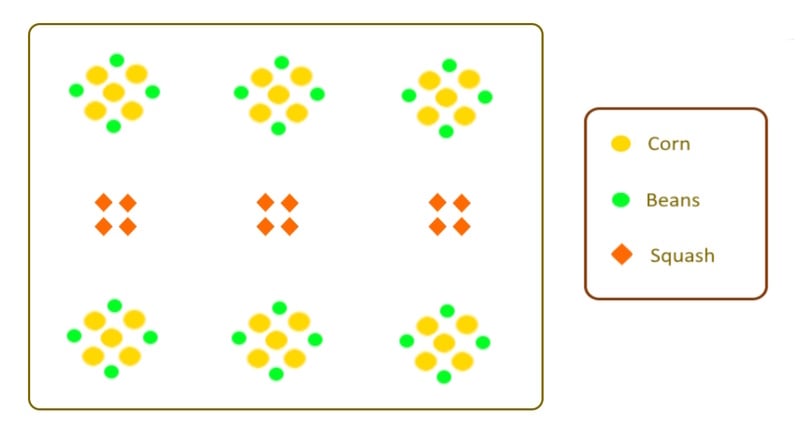
Step 1: Select a Sunny Spot
Select a spot for your garden that receives full sun for 6 to 8 hours daily.
Step 2: Do a Soil Test
A healthy garden needs healthy soil. Conduct a soil test to determine your soil’s nutrition levels, pH, and level of organic matter. Signs of healthy soil include:
- Lots of earthworms
- Fungi
- Plant growth
- Earthy smell
Step 3: Amend Your Soil
After determining the state of your soil, add soil amendments (if needed). Corn requires a lot of nitrogen, and it takes some time for the beans to help. So, many gardeners amend the soil with compost or aged manure for a natural source of nitrogen in the soil.
Step 4: Plant Corn Seeds
When: Corn’s growing season depends on your hardiness zone, but most people plant corn between April and June. Wait until after the last frost. A couple of months into growth, corn kernels mature, and tassels emerge. If you live in a hot southern climate, ensure the corn has time to tassel before the temperature gets too hot. Corn prefers 77 to 91-degree daytime temperatures.
How: Create rows of soil mounds that are 3 to 4 feet apart (if you want a small garden, you can use the square-foot garden method instead). Plant 5 to 7 corn seeds in each mound, placing them 1 to 2 inches into the soil.
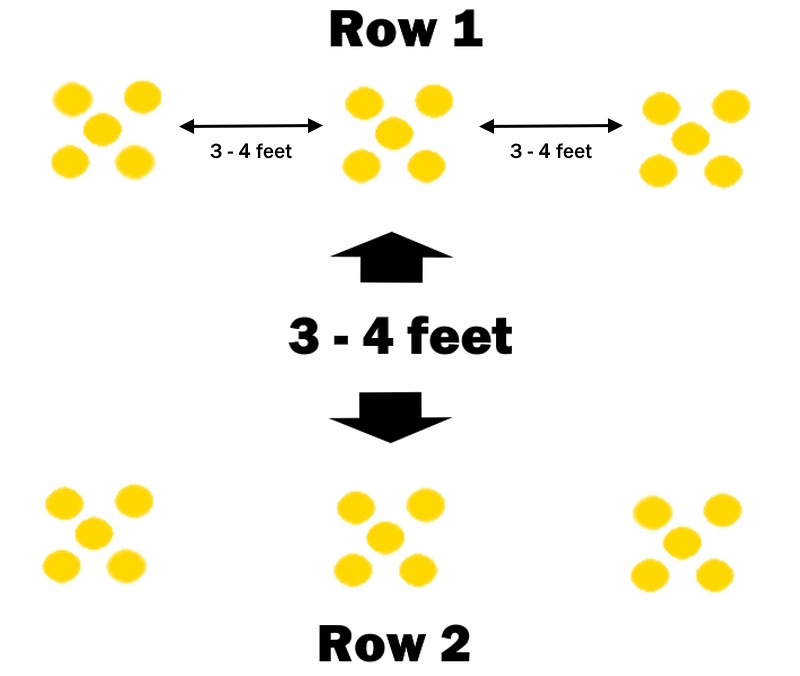
After the corn sprouts, remove any weeds and re-mound the soil surrounding the corn.
Step 5: Plant Pole Bean Seeds
When: About 2 to 3 weeks after planting, the corn will be a few inches high. This is when you plant the beans.
How: Remove any weeds, then plant 4 to 5 bean seeds around each group of corn seedlings.
Note: After the seedlings sprout, choose the healthiest and strongest plant to keep in each mound and remove the others. Ultimately, you should have one corn plant and one bean plant per mound.
Step 6: Plant Squash Seeds
When: Plant squash seeds about one week after the beans sprout.
How: Plant 4 squash seeds in a mound of soil. Squash gets its own rows in between the corn/bean rows (see the diagram above for reference).
Step 7: Keep an Eye Out
You want to watch for weeds, pests, and diseases (especially in the early growth stage), but the sisters typically care for themselves. I have gone on vacation while my Three Sisters Garden grows.
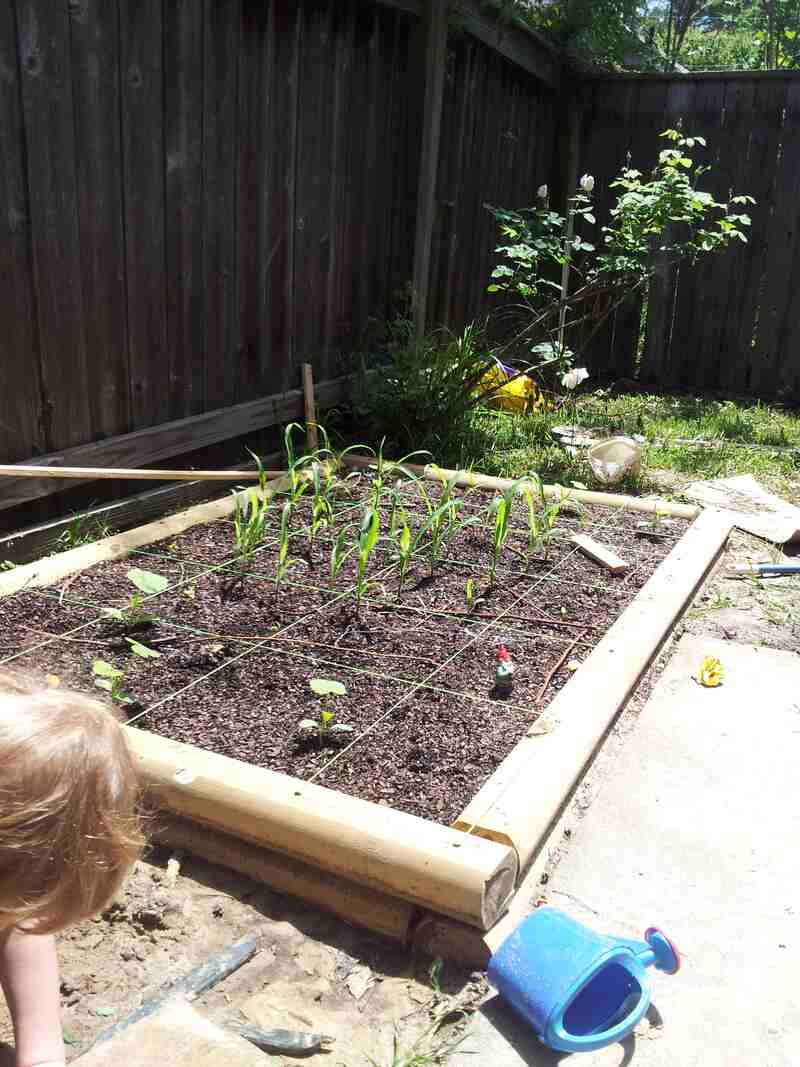
Which Plants to Grow
Now for the fun part! You get to decide which corn, pole bean, and squash varieties you prefer. Before selecting crops, consider your hardiness zone and food preferences. Here are some suggestions:
- Corn: There are many varieties of corn to choose from. Sweet corn is my favorite, and it grows great in a Three Sisters Garden. Dent, flint, and flour corn varieties also thrive.
- Beans: Make sure you choose a climbing pole bean (not a bush bean variety), such as scarlet runner and lima beans. I like growing green beans.
- Squash: Although pumpkins are the most popular choice, you can select any vining squash plant, such as spaghetti or butternut squash. I love pumpkin pie, so I recommend heirloom Small Sugar pumpkins.
What Could Go Wrong?
I have had minimal problems with Three Sisters Gardens, but here are the most common issues:
- Fungal diseases: In the early stages of growth, squash leaves are very susceptible to fungal infections. Early treatment has the best success. There are organic fungicides, but inorganic products tend to work best.
- Animals: Animals love pumpkins and other squash varieties. Birds go for the pumpkin seeds, and small mammals feast on the fruit. On one occasion, predators devoured seven of my ten pumpkins overnight. Birds may also go after the corn. Netting or chicken wire helps keep out mammals, and decoys (e.g., scarecrows, plastic owls) repel birds.
- Space: Remember that squash needs a lot of room to sprawl, but it can sprawl outside the garden area.
FAQ About Three Sisters Gardens
Follow the instructions for building a square foot garden. Plant four corn seeds in each square with a bean plant next to each one. Choose outside squares for the squash. Ensure there’s enough space outside the raised bed for your squash to sprawl.
The first step to starting a vegetable garden is to decide what vegetables you want to grow. Things to consider when choosing veggies include:
• Yard space
• Food preferences
• Soil type
• Climate
• Potential pests and diseases
• Level of maintenance you’re willing to put in
If you don’t get at least one inch of rain in a week, you should provide an inch of water to your Three Sisters. Knowing how often to water your vegetable garden will keep your crops hydrated and healthy. Beware that overwatering can be just as bad for your plants as underwatering.
Although winter squash is the traditional choice, you can also plant summer squash.
The Three Sisters provide nutrition for a well-balanced diet, including protein, carbohydrates, and amino acids:
• Corn is a whole grain full of dietary fiber, B vitamins, magnesium, and manganese.
• Beans contain a lot of fiber, protein, and vitamins K, C, and A.
• Squash is high in vitamin A and potassium.
The good news is you can’t produce too much food. Not only will your friends and family be happy to take fresh produce off your hands, but you can preserve it:
• Frozen corn stays fresh for up to one year.
• Dry beans remain fresh for a couple of years.
• Frozen squash lasts about ten months, and you can use extra pie pumpkins to make a yummy jam.
Get a Helping Hand
Although the Three Sisters take minimal effort to maintain, like with all gardens, there is a lot of initial heavy lifting. Thankfully, affordable landscaping services are available, and you can access talented landscaping pros online. In addition to helping with your garden, LawnStarter pros can maintain your lawn, bushes, and trees.
Main Photo Credit: Michelle Selzer